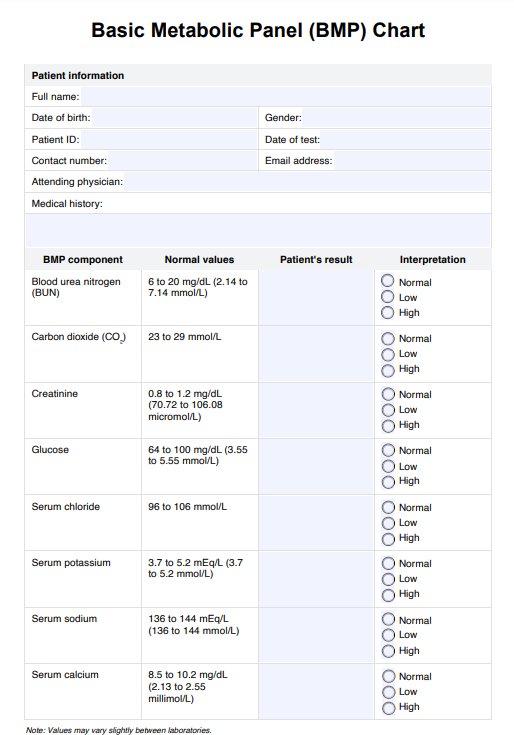A healthcare professional typically requests that this BMP blood test be carried out by a phlebotomist and receives the results from medical laboratory scientists.

BMP
Download a free BMP Chart template to simplify patient assessments. Access and use this helpful resource for tracking basic metabolic panel results.
BMP Template
Commonly asked questions
This chart is utilized when a patient is experiencing symptoms that could be related to kidney and/or metabolism issues. Patients with chronic conditions or previous abnormal results seeking an update on treatment success may also use this chart to cross-reference past parameters.
The results are collated within the easy-to-use charting tool and compared against the parameters to help inform the next steps and future interventions. The same chart may be used to collate multiple tests over time to see a change in levels resulting from treatment.
EHR and practice management software
Get started for free
*No credit card required
Free
$0/usd
Unlimited clients
Telehealth
1GB of storage
Client portal text
Automated billing and online payments











